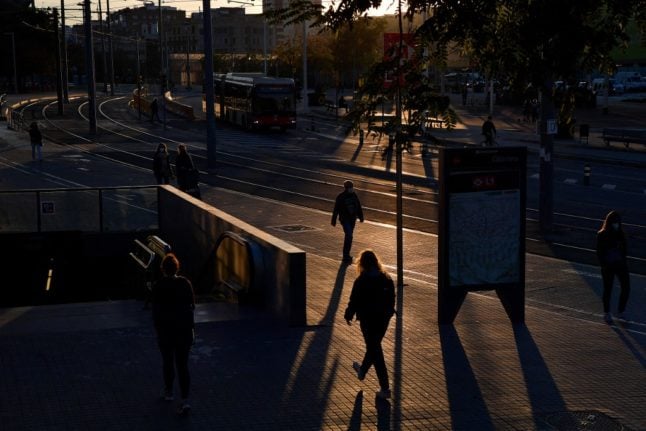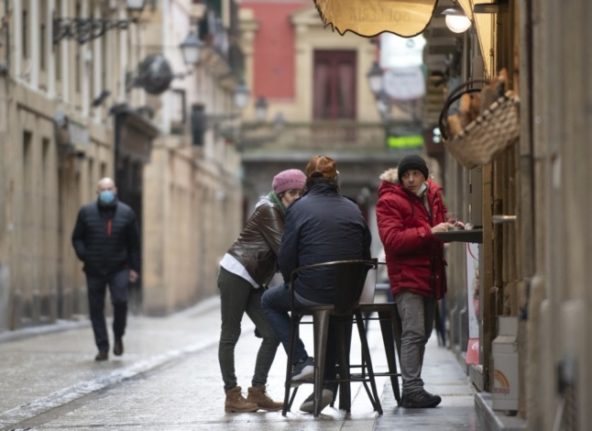Regional restrictions are getting rejected
Spain’s 17 autonomous communities and two autonomous cities now have to ask permission from their regional high courts for Covid restrictions to be kept after the state of alarm, whereas previously they enjoyed emergency powers which allowed them to roll out measures quickly without permission from the courts.
Navarre, the Basque Country and the Canary Islands have all had their requests to maintain their curfews and other measures rejected by regional judges. The Canary government, as we will mention in greater detail further down, have now appealed the matter before Spain’s Supreme Court.
It’s a constantly evolving situation as different regional authorities are introducing, adapting and removing measures based on the decisions being reached in the courts, but you can read about the latest restrictions in place across Spain here.
Some regions have managed to keep restrictions
The Balearic Islands and the Valencia region have on the other hand received the approval of their regional courts – the Tribunales Superiores de Justicia – so the curfew is maintained in both Mediterranean regions as well as the limit on gatherings in the region made up of Alicante, Valencia and Castellón.
Catalonia’s regional court has also approved a limit of six people for gatherings now that the state of alarm has ended. In Castilla-La Mancha, judges have closed the book on the region’s Level 2 and 3 measures.
In Galicia, the local government has already received the support of its regional judges to keep some restrictions and has already presented a second round of requests to the judges.

It’s legal chaos
With 19 autonomous courts handpicking which restrictions they should keep and which they should drop, it’s no wonder that not only ordinary Spaniards but even regional police forces and authorities are finding it hard to know what’s allowed and what isn’t anymore.
And it’s not as if the judges wanted to take the responsibility of governing Spain on their shoulders. Ahead of the end of Spain’s estado de alarma, legal associations and judges called Pedro Sánchez’s administration “irresponsible” for ‘passing the buck’ to them through new legislation which meant courts now decide Covid restrictions across the country.
READ MORE:
- OPINION: Ending Spain’s state of alarm in May will be a strategic error
- Five things you should be able to do when Spain’s state of alarm ends
- ‘It’s irresponsible’: Why Spain’s judges oppose govt’s handling of end of state of alarm
In such unprecedented times as this global pandemic, there’s a sense that La Moncloa demoting its powers to all regional governments and courts really is a case of allowing too many cooks to spoil the broth right at the wrong time.
So does anyone get the final say?
If restrictions are rejected by the regional high courts, autonomous governments can choose to appeal before Spain’s Supreme Court.
This is what the Canary government has chosen to do after their request for the curfew and perimetral closures were shot down by local judges.
What the Supreme Court decides in the coming days could in effect set a precedent, and several other regions are reported to be waiting to see what happens with the Canary appeal to reintroduce the curfew.
There’s a but
Prime Minister Pedro Sánchez and members of his administration continue to say that the state of alarm is no longer necessary.
However, the country’s Minister of Justice Juan Carlos Campo wrote and signed an article in national daily El País on Monday May 10th in which he said the regions have sufficient legal instruments with which to stop the spread of Covid-19.
Moreover, he reminded regional authorities that they can request their own state of alarm just for their territory from the national government, which if approved would give them back the emergency powers to introduce restrictions swiftly and without legal backing.
So if the national government doesn’t agree with the Supreme Court’s decision on one ruling, they have committed to make the legal changes to allow the regions to sidestep these judicial decisions.
Another win for Spanish bureaucracy it seems, but just more headaches for Spain’s population.



 Please whitelist us to continue reading.
Please whitelist us to continue reading.
Member comments